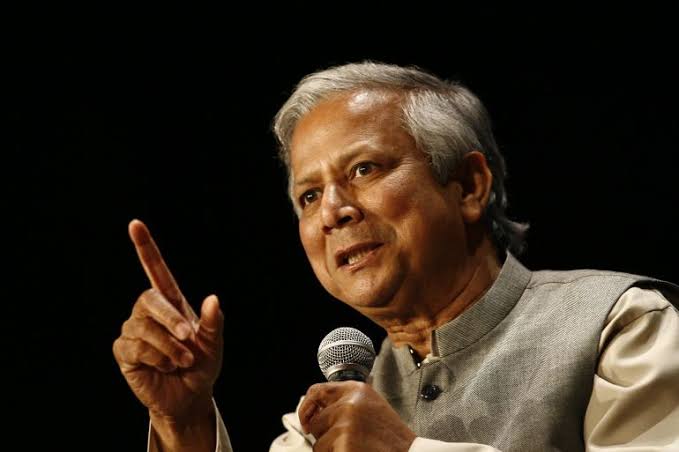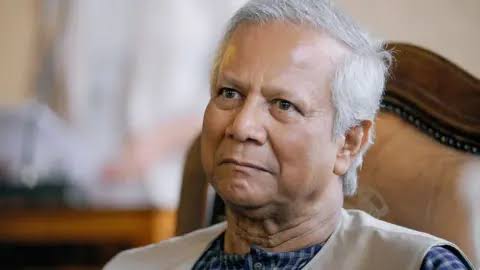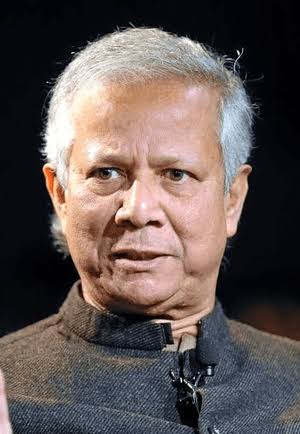Nobel Peace Prize Winner Muhammad Yunus Will Lead Bangladesh’s Interim Government
Nobel Peace Prize winner Muhammad Yunus will lead a temporary government in Bangladesh after Prime Minister Sheikh Hasina was dramatically removed. This marks the start of a new political era in the country. The news, which was made early Wednesday by President Mohammed Shahabud-din’s press secretary, Joynal Abedin, is a major turning point in the country’s unstable political scene.
After more than ten years in power, Sheikh Hasina quit and left the country during a large-scale protest led mostly by students. Many people were angry about bad economic management, graft, and violations of human rights, which led to the protests. Hasina, a major figure in Bangladeshi politics, is leaving, leaving a leadership void that Yunus, who is famous around the world for his groundbreaking work in microfinance, is now set to fill.

A New Dawn: Nobel Prize winner Muhammad Yunus to guide Bangladesh through political transition.
People in Bangladesh look up to Muhammad Yunus, who won the Nobel Peace Prize in 2006 for developing microcredit and financing through Grameen Bank. They see him as a source of hope and honesty. People see his appointment as head of the interim government as a way to bring security and trust back to the country’s government. Yunus is known for fighting for the poor, and he doesn’t support any political party. This makes him a great choice to lead the country through this time of change.
The choice to hire Yunus comes at a very important time. Bangladesh has been having trouble with its economy because of the COVID-19 pandemic. These problems include high unemployment, inflation, and less foreign investment. People think that Yunus’s knowledge of economics and creative method to fighting poverty will be very important in solving these problems. Reforms that are badly needed are expected to happen under his leadership, which will also boost trust among both domestic and foreign stakeholders.

Hope and Change: Muhammad Yunus takes the helm of Bangladesh’s interim government after Sheikh Hasina’s departure.
Yunus’s first job will be to make the political situation stable and get ready for free and fair elections. This includes making sure that the change of power happens peacefully and meeting the demands of the protesters who want big changes in how the country is run. Yunus’s rise is also seen as a victory for ordinary people over powerful political elites, given his history and past disagreements with Hasina’s government.
The news has been well received around the world, and many people are hopeful that Yunus’s leadership will bring about a new age of openness and progress in Bangladesh. The United Nations and other major financial institutions, among others, have backed Yunus and his interim government, stressing how important it is for the country to be stable and have fair processes.
Yunus has personally asked everyone in Bangladesh to be cool and work together for the future of the country. He stressed the need for inclusive development and the protection of democratic principles in his first speech as head of the interim government. He said that his main goals are to make sure that everyone in Bangladesh is healthy and to build a country that is fair and wealthy.

Guiding Light: Muhammad Yunus, known for his work in microfinance, now leading Bangladesh towards stability.The problems that need to be solved are big, but there is reason to be hopeful thanks to Muhammad Yunus’s track record in social business and his commitment to helping those who are less fortunate. During this very important time for Bangladesh, the leadership of a Nobel Peace Prize winner could very well be the key to a long-term road of peace and progress.
The whole world will be paying close attention as Muhammad Yunus takes on this huge responsibility, hoping that his time in office will start a better time in Bangladesh’s past. His ability to bring people together and make policies that work will be very important in leading the country to a stable and successful future.